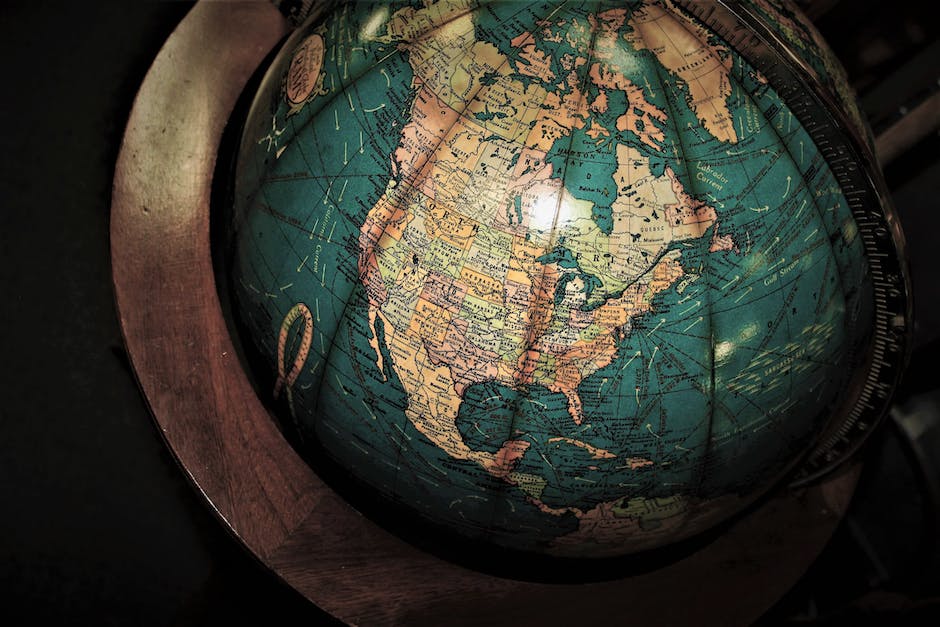Table of Contents
“The Global Tapestry: Unveiling the Transformative Power of Globalization on Cultural Identity”
Introduction
Globalization has become a prominent force shaping the world we live in today. It has brought about significant changes in various aspects of society, including the realm of cultural identity. The impact of globalization on cultural identity is a complex and multifaceted topic that has garnered much attention and debate. This essay aims to explore the effects of globalization on cultural identity, examining both the positive and negative consequences it has had on individuals, communities, and societies as a whole. By delving into various perspectives and examples, we can gain a deeper understanding of how globalization has influenced cultural identity and the implications it holds for our increasingly interconnected world.
The Role of Globalization in Shaping Cultural Identity

The Role of Globalization in Shaping Cultural Identity
Globalization has had a profound impact on various aspects of our lives, including our cultural identity. As the world becomes increasingly interconnected, cultures are no longer confined to their geographical boundaries. Instead, they are influenced by a multitude of external factors, resulting in a complex and ever-evolving cultural landscape.
One of the key ways in which globalization shapes cultural identity is through the exchange of ideas and information. With the advent of the internet and social media, people from different parts of the world can easily connect and share their experiences, beliefs, and traditions. This exchange of information has led to the blending of cultures, as individuals adopt elements from other cultures and incorporate them into their own.
Furthermore, globalization has also facilitated the spread of popular culture across borders. Movies, music, and fashion from one country can now be easily accessed and enjoyed by people in another part of the world. This has led to the homogenization of cultural practices, as people are increasingly exposed to the same cultural references and influences. As a result, traditional cultural practices and customs are often overshadowed by the dominant global culture.
However, it is important to note that globalization does not necessarily lead to the erosion of cultural identity. In fact, it can also serve as a catalyst for cultural revitalization and preservation. As people become more aware of the importance of their cultural heritage, there is a growing movement to reclaim and celebrate traditional practices. This can be seen in the resurgence of indigenous languages, the revival of traditional arts and crafts, and the promotion of local cuisines.
Moreover, globalization has also created opportunities for cultural exchange and collaboration. Artists, musicians, and writers from different cultures can now collaborate and create works that reflect a fusion of their respective traditions. This cross-pollination of ideas and artistic expressions not only enriches the cultural landscape but also fosters a sense of global citizenship and understanding.
However, it is important to acknowledge that globalization is not without its challenges. The dominance of Western cultural values and norms can often marginalize and suppress the voices of minority cultures. This can lead to a loss of cultural diversity and the perpetuation of stereotypes. It is crucial, therefore, to promote inclusivity and ensure that all cultures are given equal representation and recognition in the global arena.
In conclusion, globalization plays a significant role in shaping cultural identity. It has both positive and negative impacts, as it leads to the blending of cultures, the spread of popular culture, and the revitalization of traditional practices. While globalization can sometimes overshadow local cultures, it also provides opportunities for cultural exchange and collaboration. It is important to strike a balance between embracing the benefits of globalization and preserving the uniqueness and diversity of our cultural heritage. By doing so, we can ensure that cultural identity continues to thrive in an increasingly interconnected world.
Globalization’s Influence on Cultural Diversity and Homogenization
Globalization has undoubtedly had a significant impact on cultural identity around the world. As societies become more interconnected through trade, technology, and communication, the boundaries that once defined cultural identities are becoming increasingly blurred. This article will explore the influence of globalization on cultural diversity and homogenization, highlighting both the positive and negative consequences of this phenomenon.
One of the most apparent effects of globalization on cultural identity is the increased exposure to different cultures and ideas. Through the internet, social media, and international travel, people are now able to access information and experiences from all corners of the globe. This exposure has led to a greater appreciation and understanding of diverse cultures, fostering a sense of global citizenship and interconnectedness.
However, this increased exposure to different cultures has also led to the homogenization of cultural identities. As Western ideals and consumerism spread across the globe, traditional cultural practices and values are often overshadowed or even replaced. This phenomenon, known as cultural imperialism, can result in the loss of unique cultural traditions and the erosion of cultural diversity.
Furthermore, globalization has also had a profound impact on the economic and political aspects of cultural identity. As multinational corporations expand their reach, local businesses and industries often struggle to compete. This can lead to the loss of traditional livelihoods and a shift towards a more globalized economy. Similarly, the influence of global powers in shaping political systems can undermine local governance and cultural autonomy.
Despite these challenges, globalization has also created opportunities for cultural revitalization and preservation. As people become more aware of the threats to their cultural heritage, there has been a resurgence in efforts to protect and promote traditional practices. This can be seen in the rise of cultural festivals, heritage sites, and the revitalization of indigenous languages.
Moreover, globalization has facilitated the exchange of ideas and knowledge, leading to the emergence of hybrid cultural identities. As different cultures interact and blend, new forms of expression and creativity emerge. This fusion of cultural elements can result in the creation of unique art, music, and cuisine that reflect the diversity of global influences.
However, it is important to recognize that not all cultures have equal access to the benefits of globalization. Developing countries, in particular, often face challenges in preserving their cultural identity in the face of economic and political pressures. The dominance of Western cultural products and media can overshadow local cultural expressions, leading to a sense of cultural inferiority.
In conclusion, globalization has had a profound impact on cultural identity, both positive and negative. While it has increased exposure to diverse cultures and fostered a sense of global interconnectedness, it has also led to the homogenization of cultural practices and the erosion of cultural diversity. It is crucial to strike a balance between embracing the opportunities that globalization offers while also protecting and preserving the unique cultural identities that make our world rich and diverse.
Cultural Hybridity in the Era of Globalization
The Impact of Globalization on Cultural Identity
In the era of globalization, the world has become increasingly interconnected, with the flow of goods, services, and information transcending national boundaries. This phenomenon has had a profound impact on various aspects of society, including cultural identity. Cultural hybridity, a term used to describe the blending of different cultural influences, has become a defining characteristic of the modern world. This article explores the impact of globalization on cultural identity and the emergence of cultural hybridity.
Globalization has led to the spread of ideas, values, and practices across different cultures. As people are exposed to diverse cultural influences, their own cultural identities are inevitably shaped and transformed. This process of cultural hybridity can be seen in various aspects of life, such as language, food, fashion, and music. For example, the popularity of international cuisines like sushi and tacos in different parts of the world reflects the fusion of different culinary traditions.
One of the key drivers of cultural hybridity is the ease of communication and travel facilitated by globalization. The internet and social media platforms have made it possible for people to connect with others from different cultures and share their experiences. This has led to the exchange of ideas and the adoption of cultural practices from different parts of the world. For instance, the rise of K-pop and anime fandoms in Western countries demonstrates the global reach of popular culture and the influence it has on shaping cultural identities.
However, while globalization has undoubtedly contributed to cultural hybridity, it has also raised concerns about the erosion of traditional cultural identities. As Western cultural influences dominate the global media landscape, there is a fear that local traditions and customs may be overshadowed or even lost. This has led to debates about cultural imperialism and the need to preserve cultural diversity. Efforts to protect and promote indigenous cultures have gained traction in recent years, with initiatives such as UNESCO’s Intangible Cultural Heritage List aiming to safeguard traditional practices and knowledge.
Another aspect of the impact of globalization on cultural identity is the phenomenon of cultural appropriation. This occurs when elements of one culture are adopted by another culture without proper understanding or respect. While cultural exchange and borrowing have long been a part of human history, the power dynamics inherent in globalization can exacerbate issues of cultural appropriation. For example, the use of Native American headdresses as fashion accessories by non-indigenous individuals has been criticized as disrespectful and insensitive.
Despite these challenges, cultural hybridity can also be seen as a source of creativity and innovation. The blending of different cultural influences has led to the emergence of new art forms, music genres, and fashion trends. This cross-pollination of ideas and practices has enriched cultural expressions and created new opportunities for cultural exchange. It is through embracing cultural hybridity that societies can foster a sense of inclusivity and celebrate diversity.
In conclusion, globalization has had a profound impact on cultural identity, leading to the emergence of cultural hybridity. While this process has brought about both positive and negative consequences, it is important to recognize the value of cultural exchange and the need to preserve and respect diverse cultural traditions. By embracing cultural hybridity, societies can navigate the challenges of globalization while celebrating the richness and uniqueness of their own cultural identities.
Globalization’s Effect on Traditional Cultural Practices and Values
Globalization has undoubtedly had a profound impact on cultural identity, particularly in terms of traditional cultural practices and values. As the world becomes increasingly interconnected, traditional cultural practices are often overshadowed by the dominant global culture. This article will explore the various ways in which globalization has affected traditional cultural practices and values, and the implications this has for cultural identity.
One of the most significant effects of globalization on traditional cultural practices is the homogenization of cultures. With the spread of global media and the dominance of Western cultural products, traditional practices and values are often marginalized or even forgotten. For example, traditional forms of music, dance, and art are often replaced by more commercially viable and globally appealing forms. This not only erodes the uniqueness of different cultures but also diminishes the sense of cultural identity for individuals and communities.
Furthermore, globalization has led to the commodification of culture. Traditional cultural practices that were once deeply rooted in the everyday lives of communities are now packaged and sold as commodities for tourists or consumers. This commercialization often results in the distortion or simplification of cultural practices, as they are adapted to fit the demands of the global market. This not only undermines the authenticity of traditional practices but also reinforces stereotypes and perpetuates cultural appropriation.
In addition to the homogenization and commodification of culture, globalization has also led to the erosion of traditional values. As societies become more interconnected, traditional values that were once central to cultural identity are often challenged or replaced by more globalized values. For example, the emphasis on individualism and consumerism promoted by globalization often clashes with traditional values of collectivism and sustainability. This clash can lead to a loss of cultural identity and a sense of disconnection from one’s cultural heritage.
Moreover, globalization has also resulted in the loss of traditional knowledge and skills. As traditional practices and values are marginalized, the knowledge and skills associated with them are often neglected or forgotten. This loss of traditional knowledge not only affects the cultural identity of communities but also hinders their ability to adapt and respond to the challenges of globalization. Traditional knowledge, which often encompasses sustainable practices and a deep understanding of the local environment, can offer valuable insights and solutions to global issues such as climate change and biodiversity loss.
Despite the negative impacts of globalization on traditional cultural practices and values, there are also opportunities for cultural revitalization and preservation. Globalization has facilitated the exchange of ideas and resources, allowing communities to learn from each other and adapt traditional practices to contemporary contexts. This can lead to the revitalization of traditional practices and the creation of new forms that incorporate both traditional and global influences. Additionally, the recognition and promotion of cultural diversity can help preserve traditional practices and values, ensuring their continued relevance and importance in a globalized world.
In conclusion, globalization has had a profound impact on traditional cultural practices and values, often leading to their marginalization, commodification, and erosion. This has significant implications for cultural identity, as individuals and communities may feel disconnected from their cultural heritage. However, globalization also presents opportunities for cultural revitalization and preservation, through the exchange of ideas and the recognition of cultural diversity. It is crucial to strike a balance between the global and the local, ensuring that traditional cultural practices and values are valued and protected in an increasingly interconnected world.
Q&A
1. How does globalization impact cultural identity?
Globalization can lead to the erosion of cultural identity as it promotes the spread of dominant global cultures and values, resulting in the loss of traditional customs, languages, and practices.
2. What are some negative effects of globalization on cultural identity?
Negative effects of globalization on cultural identity include cultural homogenization, cultural appropriation, and the marginalization of indigenous cultures, leading to a loss of diversity and uniqueness.
3. Are there any positive effects of globalization on cultural identity?
While globalization can have negative impacts, it can also facilitate cultural exchange, appreciation, and the preservation of cultural heritage through increased connectivity and access to information and resources.
4. How can societies mitigate the negative impacts of globalization on cultural identity?
Societies can mitigate the negative impacts of globalization on cultural identity by promoting cultural diversity, supporting local arts and traditions, fostering intercultural dialogue, and implementing policies that protect and preserve cultural heritage.
Conclusion
In conclusion, globalization has had a significant impact on cultural identity. It has led to the spread of ideas, values, and practices across borders, resulting in the homogenization of cultures. While globalization has provided opportunities for cultural exchange and diversity, it has also posed challenges to the preservation of unique cultural identities. The influence of global media, consumerism, and migration has contributed to the erosion of traditional cultural practices and values. However, it is important to recognize that cultural identity is not static and can adapt and evolve in response to globalization.




